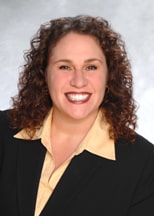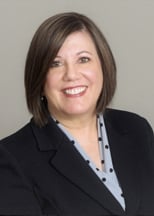By Jaimee K. Wellerstein, Esq.
and
Annette M. Barber, Esq.
The emergency nature of recent COVID-19 related legislation has left many employers with questions. This update will focus on new guidance provided by state and federal governmental agencies regarding the use of the federal Families First Coronavirus Response Act and San Francisco Paid Sick Leave.
Families First Coronavirus Response Act
On March 24, 2020, the U.S. Department of Labor (DOL) published guidance for employers on the new Families First Coronavirus Response Act (FFCRA), which includes a model notice for employers to post and distribute to employees, FAQs, a fact sheet for employers and employees. Following are some significant updates:
- The FFCRA is not retroactive and becomes effective April 1, 2020.
- The FFCRA paid leave requirements apply only to current employees, not terminated employees.A notice must be placed in a conspicuous place on the business premises where all employees will see it. Alternatively, the employer can email the notice to all employees or post it on an internal website.
- Following is the link to the model notice: https://www.dol.gov/sites/dolgov/files/WHD/posters/FFCRA_Poster_WH1422_Non-Federal.pdf
- Following is a link to FAQs regarding the poster: https://www.dol.gov/agencies/whd/pandemic/ffcra-poster-questions
- The FFCRA applies to employers with less than 500 employees. A corporation with separate establishments or divisions is considered to be a single employer, but those employers should apply the joint employer test under the Fair Labors Standards Act. For more guidance on this, please contact your attorneys at Bradley, Gmelich & Wellerstein LLP.
- For additional guidance and clarification, following is a link to additional FAQs and Fact Sheets:
https://www.dol.gov/agencies/whd/pandemic/ffcra-questions
https://www.dol.gov/agencies/whd/pandemic/ffcra-employer-paid-leave
https://www.dol.gov/agencies/whd/pandemic/ffcra-employee-paid-leave
Employer Takeaway: Employees will be eligible for paid leave under the FFCRA effective April 1, 2020. Employers need not pay out FFCRA leave to terminated employees, including those laid off. A notice must be posted and/or distributed to all employees via email or company intranet.
San Francisco City Paid Sick Leave Ordinance
On March 24, 2020, the San Francisco Office of Labor Standards Enforcement (OLSE) which is responsible for enforcing the City’s wage and other employment laws, issued new guidance regarding the use of paid sick leave by workers in San Francisco. The new guidance supersedes the guidance issued on March 16, 2020. Importantly, the new guidance makes it clear that employees are not eligible for paid sick leave if their employment has been separated (e.g. termination, layoff, resignation or retirement).
The guidance also provides that an employee may use paid sick leave for any of the following qualifying reasons:
- The employee takes time off work because public health officials or healthcare providers require or recommend an employee isolate or quarantine to prevent the spread of disease, or to provide care for a family member so ordered.
- The employee takes time off work because the employee falls within the definition of a “vulnerable population” under the San Francisco Department of Public Health’s (DPH) March 6, 2020 guidelines or any subsequent updates. As of March 6, 2020, a “vulnerable population” is a person who is 60 years old or older or a person with a health condition such as heart disease, lung disease, diabetes, kidney disease, or weakened immune system.
- The employee takes time off work because the employee’s business or a work location temporarily ceases operations in response to a public health or other public official’s recommendation as long as the employee is still employed and not separated (which includes temporary layoffs and furloughs).
- The employee takes time off work because the employee needs to provide care for a family member whose school, child care provider, senior care provider, or work temporarily ceases operations in response to a public health or other public official’s recommendation.
OLSE’s new guidance prohibits an employer from requiring a doctor’s note or other documentation for an employee’s use of paid sick leave during the duration of the local health emergency relating to COVID-19. However, the guidance does not address whether an employer can require a doctor’s note to determine whether an employee may safely return to work without posing a threat of infection to the workplace, or if the employee experienced COVID-19 symptoms, or was in contact with an infected person. Because an employer also has obligations to maintain a safe workplace, we recommend you follow your local Health Department guidelines and make individual assessments.
Following is a link to the OLSE’s new guidance: https://sfgov.org/olse/san-francisco-paid-sick-leave-coronavirus-0
Employer Takeaway: Employers need not pay out San Francisco Paid Sick Leave for terminated employees, whether the termination is through layoffs or furloughs. Medical documentation cannot be required for the use of the paid sick leave. However, employers are advised to follow local health department guidelines for allowing an employee into the workplace that has contracted COVID-19, has symptoms of the virus or has been exposed to an infected person and make an individualized assessment.
Have more specific questions about how to maneuver the evolving COVID-19 landscape? Contact your attorneys at Bradley, Gmelich & Wellerstein LLP. We are here to help.

Jaimee K. Wellerstein, Esq. is a Partner and the firm’s Employment Team Head. Representing employers in all aspects of employment law, Ms. Wellerstein collaborates with her clients to develop proactive business and legal strategies to try to avoid workplace conflict and employment disputes. She provides legal advice and counsel to numerous businesses, including conducting individualized training programs for both management and employees. Ms. Wellerstein performs internal audits of her clients’ employment practices to ensure compliance with the rapidly-changing world of employment laws, and guides investigations of employee allegations regarding harassment, discrimination, and employee misconduct.
When litigation cannot be avoided, Ms. Wellerstein aggressively defends her clients against employment law claims in the state and federal courts, as well as at administrative hearings, arbitrations, and mediations. Having defended numerous representative and individual lawsuits on behalf of her clients, Ms. Wellerstein is a skilled litigator and negotiator with a broad spectrum of experience upon which to draw.
A frequent speaker on numerous topics, including employment law and contract law, Ms. Wellerstein regularly conducts training seminars and programs for managers and employees in all areas of employment practices and policies.

Annette M. Barber, Esq. joined the firm as Special Counsel after 17 successful years of employment with a global security company of 100,000 U.S. employees. As corporate employment counsel for the security company, Ms. Barber was involved in managing employment litigation and providing advice and counsel for management. She was then promoted to Corporate Vice President directing HR Compliance nationwide for all 50 states, Puerto Rico and Guam.
As Special Counsel, Ms. Barber works with employers to provide guidance on all employment related issues and specializes in assisting employers with staying compliant with the myriad of employment laws. She provides employers with the tools necessary to be proactive with compliance, including creating policies and procedures, employee handbooks and all employment related documents. Ms. Barber also performs internal compliance audits to assist employers in identifying vulnerabilities and establishing procedures to prevent potential liability. Ms. Barber presents on various employment related topics and creates workplace trainings to meet an employer’s specific needs. She is an experienced workplace investigator of harassment and discrimination claims and represents employers in defending against charges brought by the Equal Employment Opportunity Commission and the California Department of Fair Employment and Housing.

